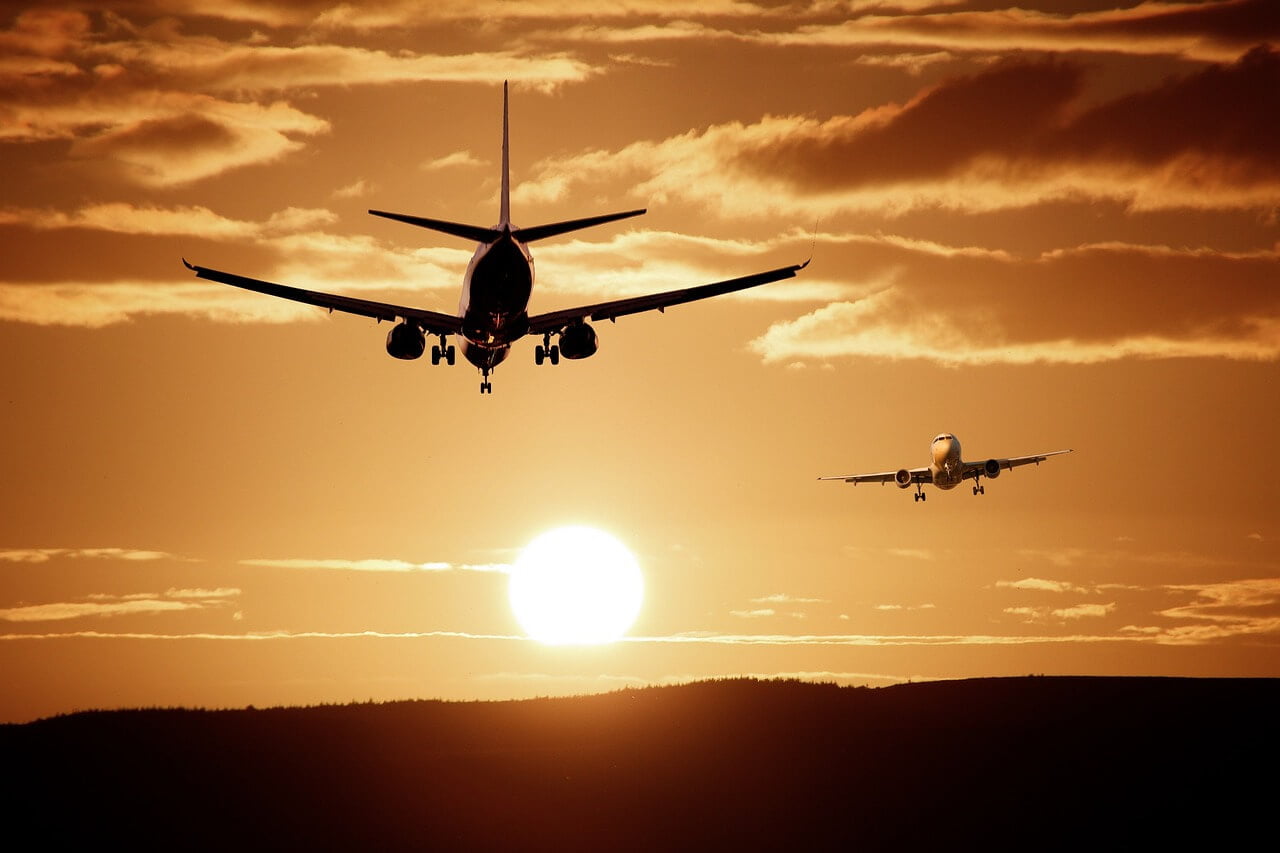France restricts short-haul flights where trains are accessible with an end goal to lessen fossil fuel byproducts.
The restriction became effective on May 23, 2023, and applies to flights that take under over two hours to go via train. This implies that trips among Paris and urban communities like Nantes, Lyon, and Bordeaux are presently restricted. It is as yet permitted to Interface flights.
Lenient Beaune, France’s transport minister, proclaimed the pronouncement.
“This is an essential step and a strong symbol in the policy of reducing greenhouse gas emissions,” Beaune said in an explanation.
“As we fight relentlessly to decarbonize our lifestyles, how can we justify the use of the plane between the big cities which benefit from regular, fast and efficient connections by train,” he added.
Just three courses have been stopped: those connecting Paris-Orly air terminal to the urban areas of Bordeaux, Nantes and Lyon.
Corresponding flights will be unaffected.
For the restriction to apply, the EU demanded the air course being referred to should have a high velocity rail elective that makes it conceivable to go between the two urban communities in under over two hours.
There must likewise be an adequate number of rights on time and late-running trains to empower explorers to spend somewhere around eight hours at the objective.
Some have censured French President Emmanuel Macron for diluting proposition from his own natural board, which had suggested a prohibition on flights where a train excursion would take less than four hours.
Pundits have brought up that high velocity train lines were at that point emptying travelers away out of aircrafts and that the restriction offers empty talk to environment worries without truly making a difference them.
” No-one will be fooled by this measure: passengers are naturally turning away from taking flights on these routes,” Guillaume Schmid, previous VP of Air France’s pilots’ association, tweeted.
” The French flight ban is a symbolic move, but will have very little impact on reducing emissions,” said Jo Dardenne, a flying chief at cleaner transport crusade bunch Transport and Climate.
T&E gauges that the three courses impacted by the restriction address just 0.3 percent of the outflows delivered by flights taking off from central area France, and 3 percent of the country’s homegrown flight emanations (counting just central area homegrown flights).
The restriction has been met with blended responses. Certain individuals support the restriction, contending that it is a vital stage to decrease outflows. Others go against the restriction, contending that it is badly designed and will compel individuals to take longer excursions via train.
The reality of the situation will surface at some point whether the restriction will find actual success in decreasing discharges. Nonetheless, it is an obvious indicator that France is focused on making a move on environmental change.
Here are a few extra insights regarding the restriction:
- The restriction applies to all aircrafts, including Air France, the public transporter.
- The restriction doesn’t make a difference to flights that are fundamental for clinical or different reasons.
- The public authority has said that it will screen the effect of the restriction and may make changes from here on out.
- The restriction is a critical stage for France, and it very well may be a model for different nations to follow. Assuming the boycott is fruitful in lessening discharges, it could assist with preparing for more aggressive environment activity all over the planet.
Here are a portion of the likely advantages of the restriction:
- Decreased fossil fuel byproducts: The restriction is supposed to save an expected 2 million tons of carbon dioxide each year. This is a critical commitment to France’s environment activity objectives.
- Expanded utilization of public transportation: The restriction is supposed to urge individuals to utilize public transportation as opposed to flying for little excursions. This could prompt a decrease in gridlock and air contamination.
- Further developed air quality: The restriction is supposed to further develop air quality in France by lessening the quantity of flights. This could decidedly affect general wellbeing.
Here are a portion of the possible difficulties of the restriction:
- Expanded travel times: The restriction could prompt expanded travel times for individuals who are accustomed to flying for brief excursions. This could be a burden for certain individuals.
- Diminished decision: The restriction could decrease the quantity of movement choices accessible to individuals. This could be an issue for individuals who need to go for work or different reasons.
- Inflated costs: The restriction could prompt inflated costs for carriers and travelers. This could make travel more costly for certain individuals.
Generally, the restriction on short-pull flights is a positive step for France. It is an obvious indicator that the nation is focused on making a move on environmental change. The restriction can possibly diminish fossil fuel byproducts, further develop air quality, and urge individuals to utilize public transportation. Be that as it may, there are a few potential difficulties related with the restriction, for example, expanded travel times and expenses. The reality of the situation will come out at some point whether the restriction will find success in accomplishing its objectives.
News Source: – https://www.9news.com.au/
You can now follow us on Mastodon for the latest travel information and news!


+ There are no comments
Add yours